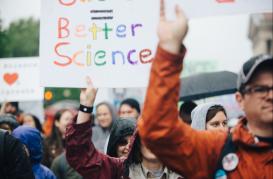Observers of science today often note a strange disjuncture: while science is more important than ever, it is also more distrusted than ever. The sources of that distrust are multiple. Decades of activism and scholarship have revealed occasions on which scientists, in collusion with industry and government, have placed their own interests above the wellbeing of the communities in which they work. At the same time, scientists have become increasingly vocal about systemic problems that can only be solved through wrenching changes in ways of life—and the opponents of those changes have not hesitated to question scientists’ motives and methods. Meanwhile, a resurgence of interest in Indigenous, non-Western, and traditional ways of knowing has offered appealing alternatives to mainstream science and its search for what can seem like rootless and amoral truths.
For historians of science, these developments represent a tectonic shift in the landscape of scholarship. For most of the field's history, scholars could safely assume that their nonspecialist readers and students were believers in science as a source of authoritative, universal truths—and therefore that the value of their scholarship lay in demonstrating how that authority had emerged historically and how those universal claims had been grounded in specific times and places. That assumption is no longer safe. If anything, nonspecialists tend to be more skeptical about the value of science than scholars are. They need no convincing that science is partial and situated—and even if they did, they have many other interlocutors to turn to.
One way that historians have responded to this changing landscape is by using history to explain why science ought to be trusted, and how that trust might be strengthened. But this shift also raises broader questions—questions not, in the first instance, about trust, but about the kinds of relationships that science has produced and participated in. How have shared projects of knowledge production strengthened people's connections to each other? How have disagreements over the standards and practices of knowledge production split communities apart? And how might science's relations be reconfigured in ways that are more hopeful and more just? Pursuing these questions, research in Department II aims to understand science as a knowledge system that has structured relationships among individuals and communities on a variety of scales, from the laboratory bench to institutions of global governance.

